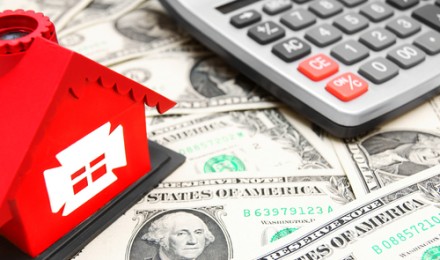Every year more or less every homeowner gets an estimated tax bill from their local municipality or town or city, indicating what their current real estate taxes are and what their taxes will be the following year. The real estate taxes are based on the assessed value of your home or condo. But with property values having plunged significantly over the last few years (and just starting an upward turn recently), many people are realizing that their homes may currently be over-valued and, as a result, their real estate taxes are too high.
So what do you do if you think the value of your home as determined by your municipality is too high? When the housing market fell apart, home prices dropped significantly but that didn’t stop towns from continuing to send out real estate tax bills based on the value of homes from before the market tanked. And you can understand why a town would do this.
Each town or municipality has a local budget it must adhere to and a big component of that budget is the money realized through the collection of real estate taxes. More and more taxpayers are challenging their real estate taxes. For example, in New Jersey, where I live, the Department of Community Affairs says that the number of taxpayers that have appealed their real estate taxes since 2006 has gone up 400%. And in Chicago, the Chicago Tribune reported that the Cook County Board of Review saw an increase in tax appeals from 130,000 homeowners in 2005 to 439,000 in 2009, an increase of nearly 350%.
If you think your real estate taxes are too high because the value of your property has decreased over the last few years, you need to gather certain information to bolster your claim. You certainly need your most recent tax bill and your new tax assessment notice as well. And if your house has been appraised in the last few years (and it would have been if you’ve refinanced your mortgage), that can help document what a professional has determined is the correct value of your house.
You should also get in contact with the local tax office to see if you can get a copy of your property information. That should show you everything that the municipality uses to calculate the value of your house and its worth checking to make sure that everything is right. For example, if you and your neighbor have the exact same 4-bedroom, 2-1/2 bath Colonial but your neighbor has put in an in-ground pool and finished their basement and installed solar panels on the roof, there’s virtually no way that you should be paying the same amount of real estate taxes that your neighbor does.
But here’s the rub. If you’re successful in winning your appeal (and a good number of taxpayers are), the town will have to refund any overpayment to you. And if enough taxpayers are also successful in winning, it means more money refunded and less money coming in to the town in the future. You know what that means, don’t you?
It means one of two things – or maybe both things. The first thing that can happen is that the town will have to raise their tax rate to make up the difference in the lower property values. The other thing that may happen is that municipalities will have to cut back on services – like police or school budgets or road repairs – because they don’t have as much money to pay for them. So if you’re thinking of appealing your real estate tax bill and win, just remember that you still could be paying more money down the road in terms of higher tax rates.
Every year more or less every homeowner gets an estimated tax bill from their local municipality or town or city, indicating what their current real estate taxes are and what their taxes will be the following year. The real estate taxes are based on the assessed value of your home or condo. But with property values having plunged significantly over the last few years (and just starting an upward turn recently), many people are realizing that their homes may currently be over-valued and, as a result, their real estate taxes are too high.
So what do you do if you think the value of your home as determined by your municipality is too high? When the housing market fell apart, home prices dropped significantly but that didn’t stop towns from continuing to send out real estate tax bills based on the value of homes from before the market tanked. And you can understand why a town would do this.
Each town or municipality has a local budget it must adhere to and a big component of that budget is the money realized through the collection of real estate taxes. More and more taxpayers are challenging their real estate taxes. For example, in New Jersey, where I live, the Department of Community Affairs says that the number of taxpayers that have appealed their real estate taxes since 2006 has gone up 400%. And in Chicago, the Chicago Tribune reported that the Cook County Board of Review saw an increase in tax appeals from 130,000 homeowners in 2005 to 439,000 in 2009, an increase of nearly 350%.
If you think your real estate taxes are too high because the value of your property has decreased over the last few years, you need to gather certain information to bolster your claim. You certainly need your most recent tax bill and your new tax assessment notice as well. And if your house has been appraised in the last few years (and it would have been if you’ve refinanced your mortgage), that can help document what a professional has determined is the correct value of your house.
You should also get in contact with the local tax office to see if you can get a copy of your property information. That should show you everything that the municipality uses to calculate the value of your house and its worth checking to make sure that everything is right. For example, if you and your neighbor have the exact same 4-bedroom, 2-1/2 bath Colonial but your neighbor has put in an in-ground pool and finished their basement and installed solar panels on the roof, there’s virtually no way that you should be paying the same amount of real estate taxes that your neighbor does.
But here’s the rub. If you’re successful in winning your appeal (and a good number of taxpayers are), the town will have to refund any overpayment to you. And if enough taxpayers are also successful in winning, it means more money refunded and less money coming in to the town in the future. You know what that means, don’t you?
It means one of two things – or maybe both things. The first thing that can happen is that the town will have to raise their tax rate to make up the difference in the lower property values. The other thing that may happen is that municipalities will have to cut back on services – like police or school budgets or road repairs – because they don’t have as much money to pay for them. So if you’re thinking of appealing your real estate tax bill and win, just remember that you still could be paying more money down the road in terms of higher tax rates.





